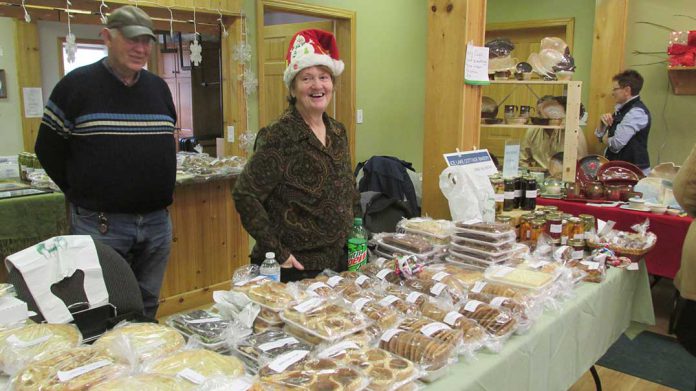EVANSVILLE—The Township of Burpee-Mills has now established a compensation program for livestock kills, specifically coyotes.
“We have put in place a predator control program in which taxpayers who legally take coyotes within municipal boundaries can then turn the carcass into the municipal designate,” said Ken Noland, reeve of Burpee-Mills, after a regular council meeting Monday night. Those legally taking a coyote carcass will receive compensation of $50 for each.
The motion passed by council reads, “that we implement the paying to Township of Burpee and Mills taxpayers $50 for a coyote carcass taken legally and within the Township of Burpee and Mills that is brought to the municipal designate. That the payment fund will be capped at $2,000. And further that the municipal designate will keep records.”
“We (municipality) had put $2,000 into a fund, that would provide compensation to local taxpayers,” said Mr. Noland, “for up to 40 coyotes being harvested.”
“We’re attempting to address the problem of predator kills by going to the source of the problem,” said Reeve Noland. “Currently there are too many coyotes around.”
Reeve Noland said the compensation program will be in place for a year, at which time council will review it to see if addresses the problem.
As reported in the December 1, 2017 edition of the Recorder, with pressure mounting from many farming groups, municipalities and individuals, the Ontario Ministry of Agriculture, Food and Rural Affairs (OMAFRA) has announced that a review of the present Wildlife Damage Compensation program will be taking place.
OMAFRA minister Jeff Leal spoke to the issue at the Ontario Federation of Agriculture annual meeting recently and said there will be a total review of the program beginning the first of the year (2018) on the Wildlife Compensation Program. Mark Kunkel of the OFA was quoted as saying, “there are a lot of problems with the (current) program and it is not providing the type of compensation that is needed for farmers who are losing livestock from predator kills.” He explained the percentage of farmers who have made claims for livestock predator kills and been declined for this compensation has gone up from four percent to 20 percent under this program.
Another concern that farmers have is that evaluators in place now who investigate livestock predator kills for farmers in a municipality currently send a report down to the ministry offices in Guelph and a decision on the claim is made there, said Mr. Kunkel. “What is needed is for all investigators to get the proper training, and to decide once they have done their work, if compensation will be provided, and hopefully once the review is complete, this will be the case.
Mr. Leal, in his remarks at the OFA meeting, said, “I want you to know that I have heard your concerns about the new Wildlife Damage Compensation Program. As with all government programs, we want to ensure they are directly benefitting those who rely on them the most. That’s why we will be launching an evaluation of the program after a year of implementation, along with involvement of our partners, like the OFA, to ensure the program continues to work in the best interest of producers. And based on these discussions, changes to the program will be considered.”
Reeve Noland said, “we welcome a review of the program, there are a lot of inadequacies in it. For instance, it takes months for the program to be administered and the claim rejection rate is high; and the compensation provided is only a partial amount of the actual loss. And currently, if a farmer has too many claims they have to take a program on how to protect animals, which is a crock.”
Earlier this fall Reeve Noland explained one farmer in Burpee-Mills had to shoot eight coyotes within one week who were harassing his cattle. He pointed out that originally there had been a wolf bounty in place through the province, which provided $25 per livestock animal killed by a predator. Municipalities had a similar bounty in place for chickens and other animals they owned. However, municipalities then received flak for having the bounties in place and the Ministry of Natural Resources cancelled the bounty program. So municipalities on Manitoulin Island went together to have a bounty system in place ($75 per animal) through the Manitoulin Municipal Association. It was at this time the province came forward and said if the local municipalities cancelled the bounty program they would provide a livestock compensation program.
However, Reeve Noland noted the current provincial predator control program does not work. “From what I have been told as little as one in 10 farmer’s claims are currently approved by the province. One of the reasons for this, in the case of sheep for example, is a coyote will come in kill and keep the sheep and there is no carcass to show the claims investigator. So the farmer gets no compensation for this.”




